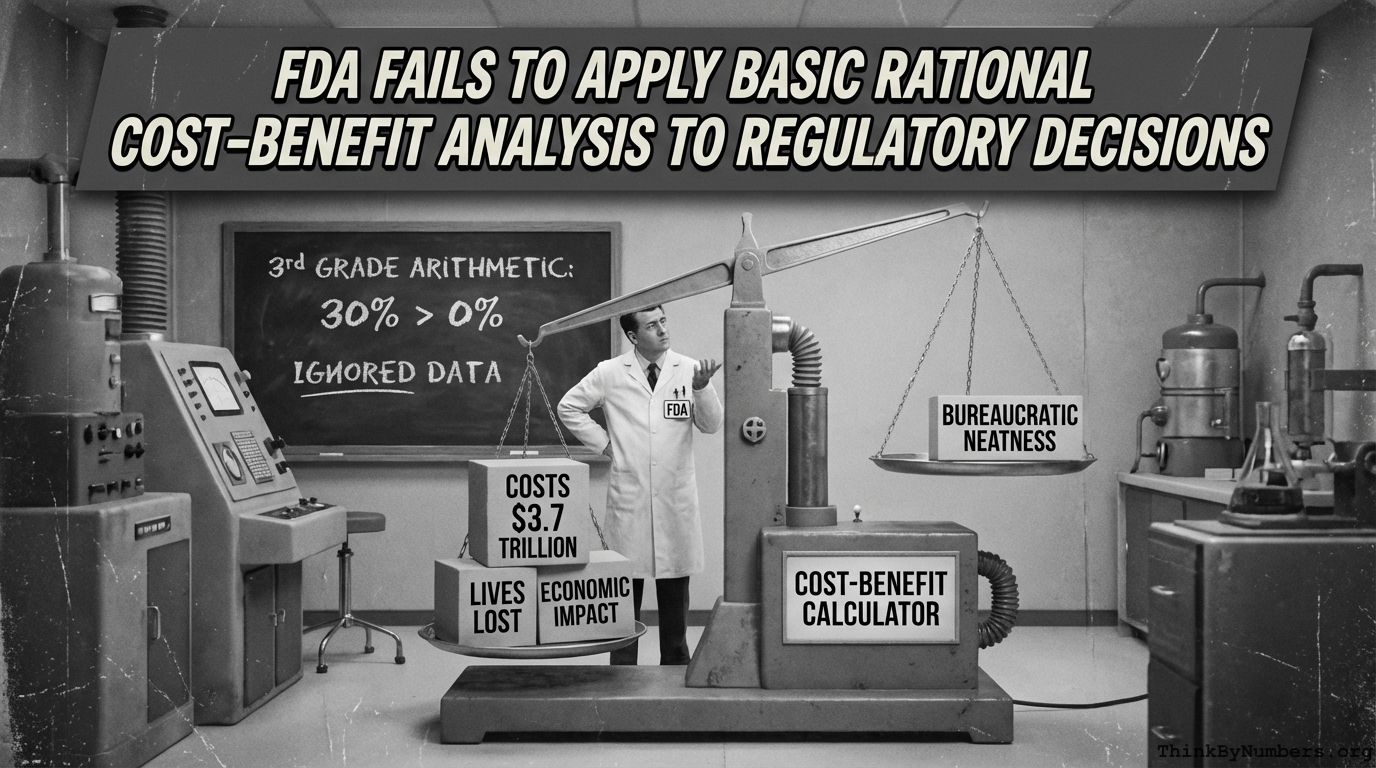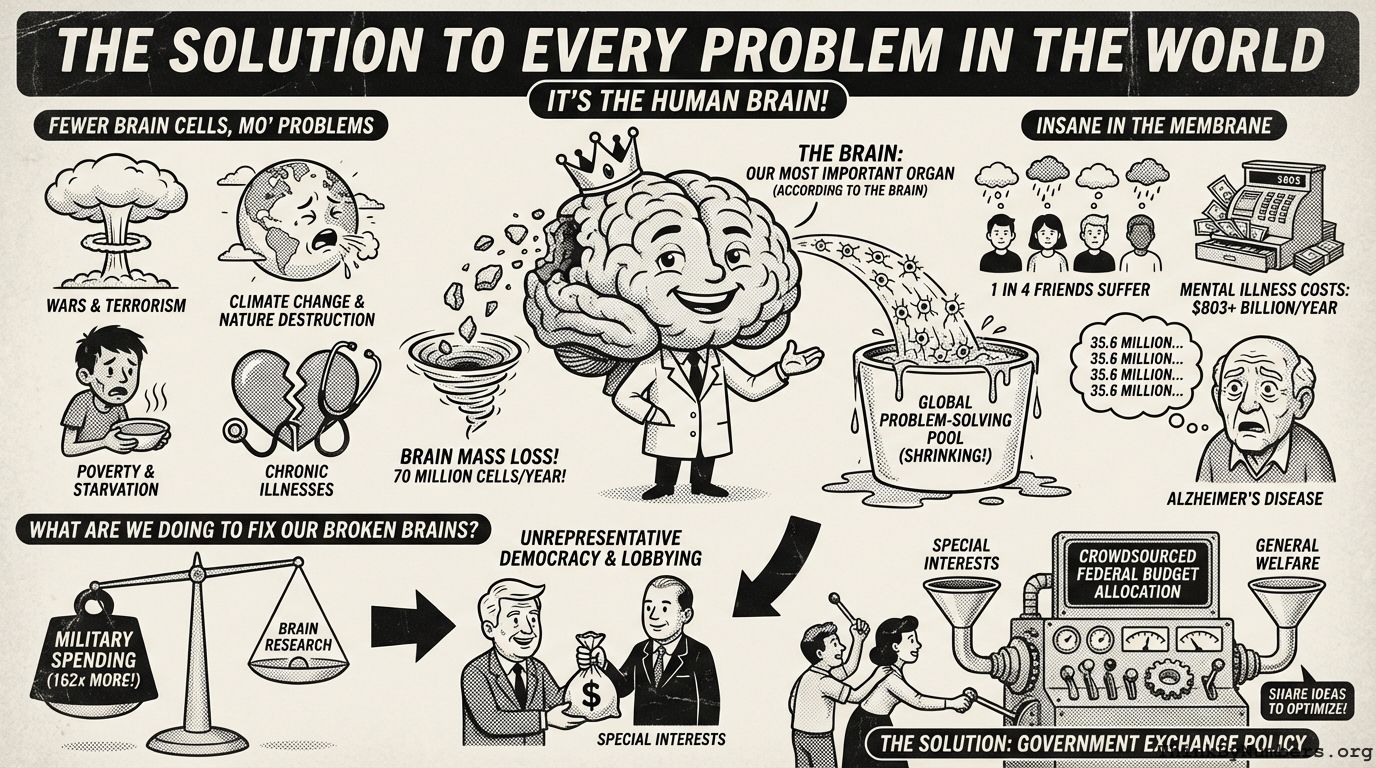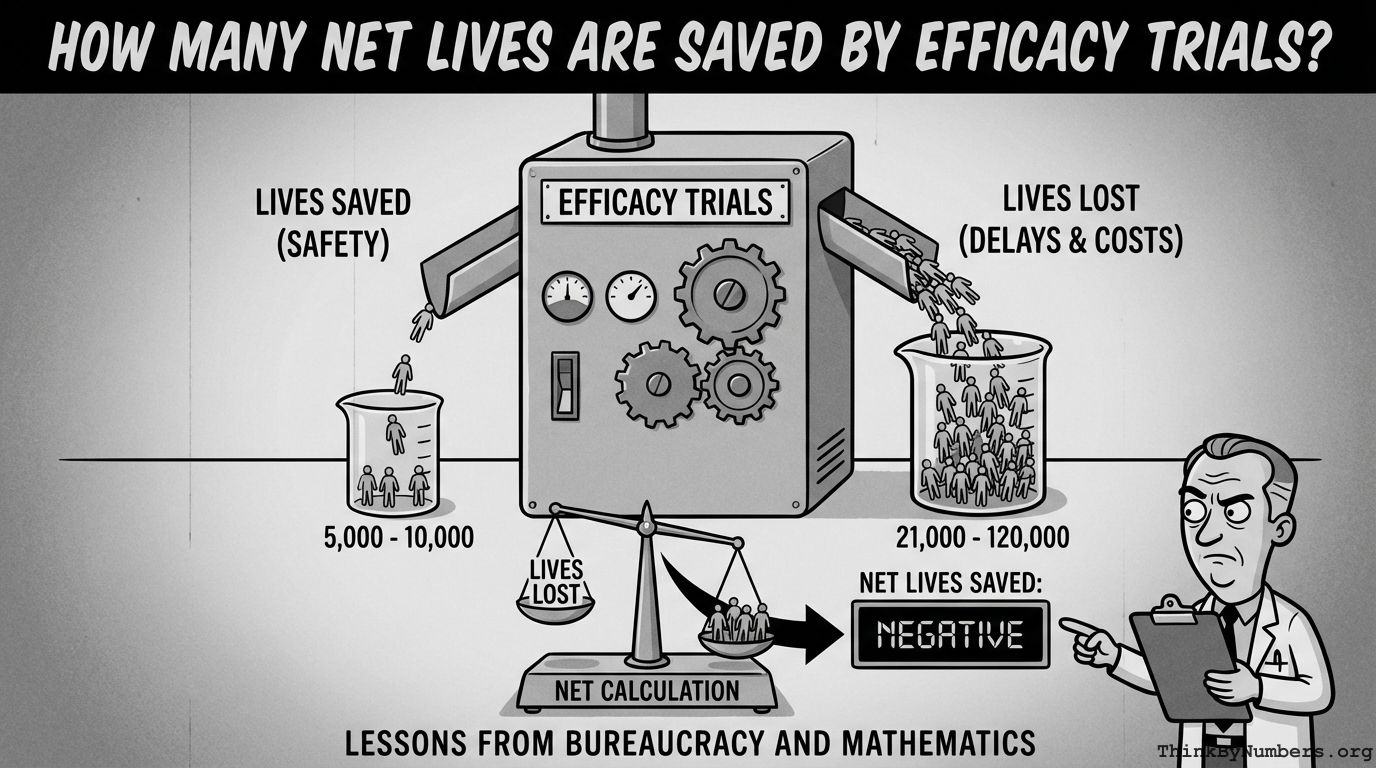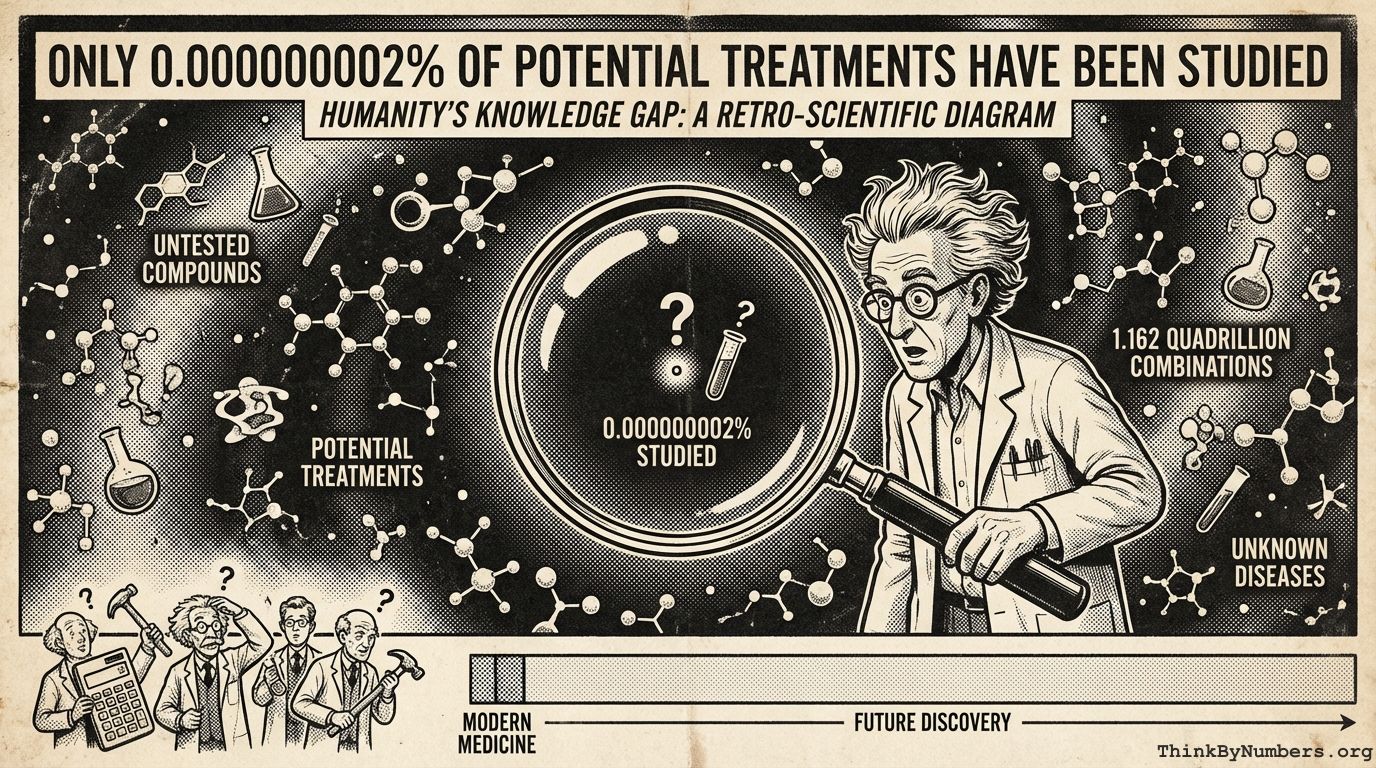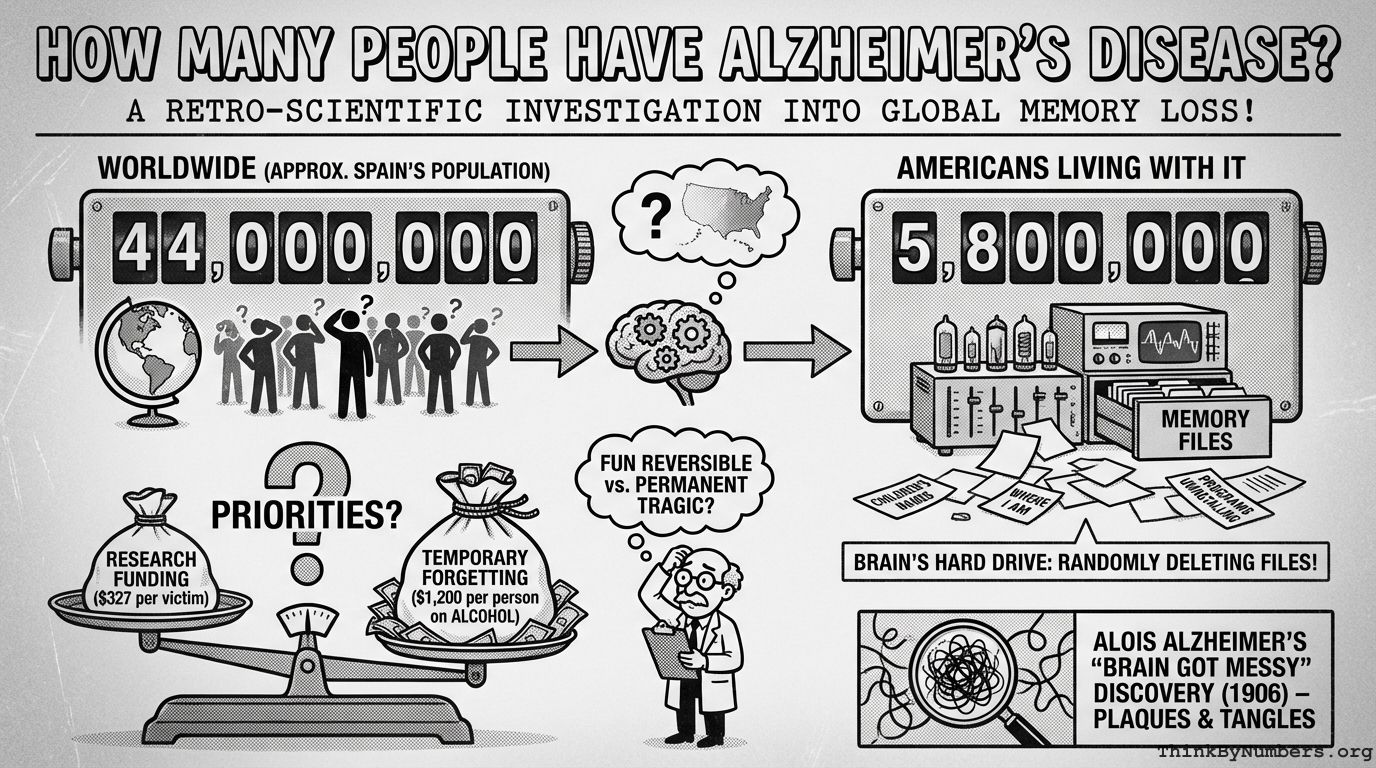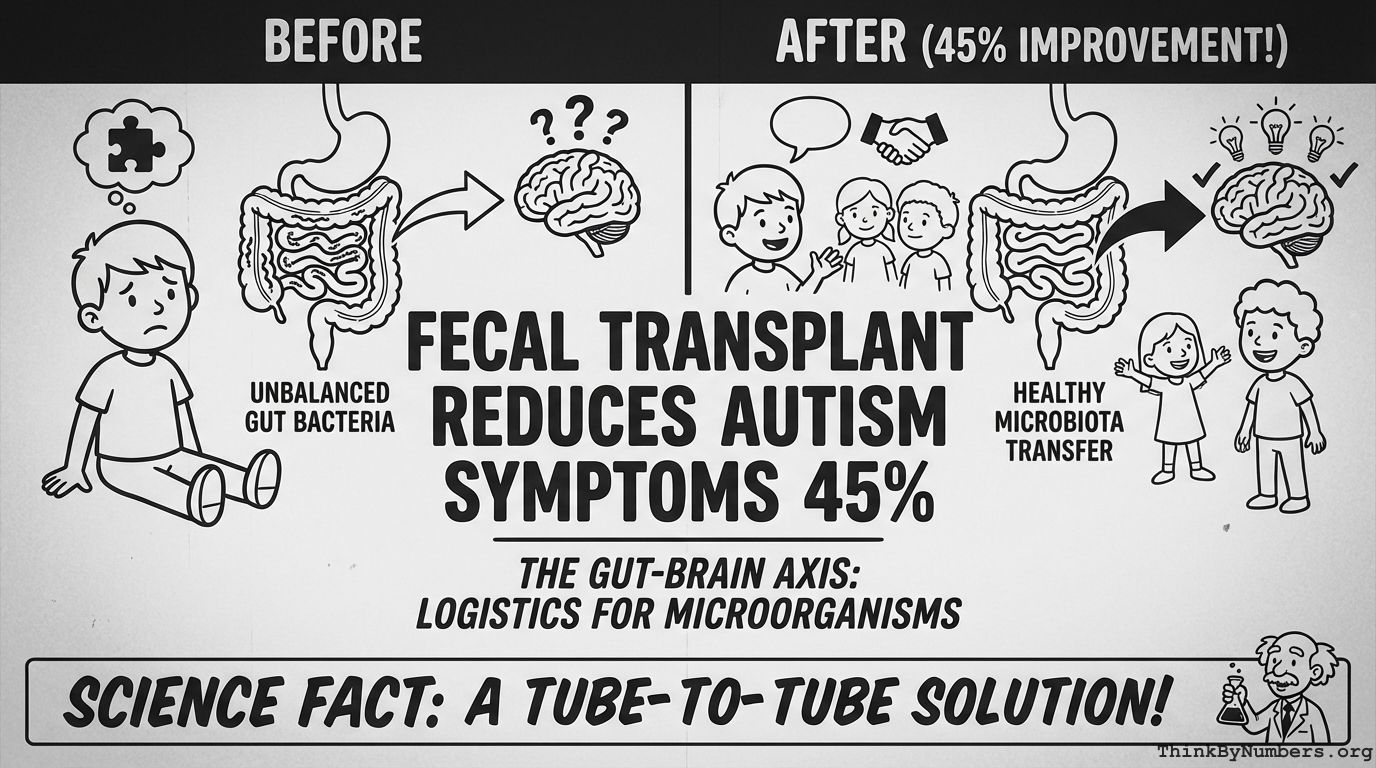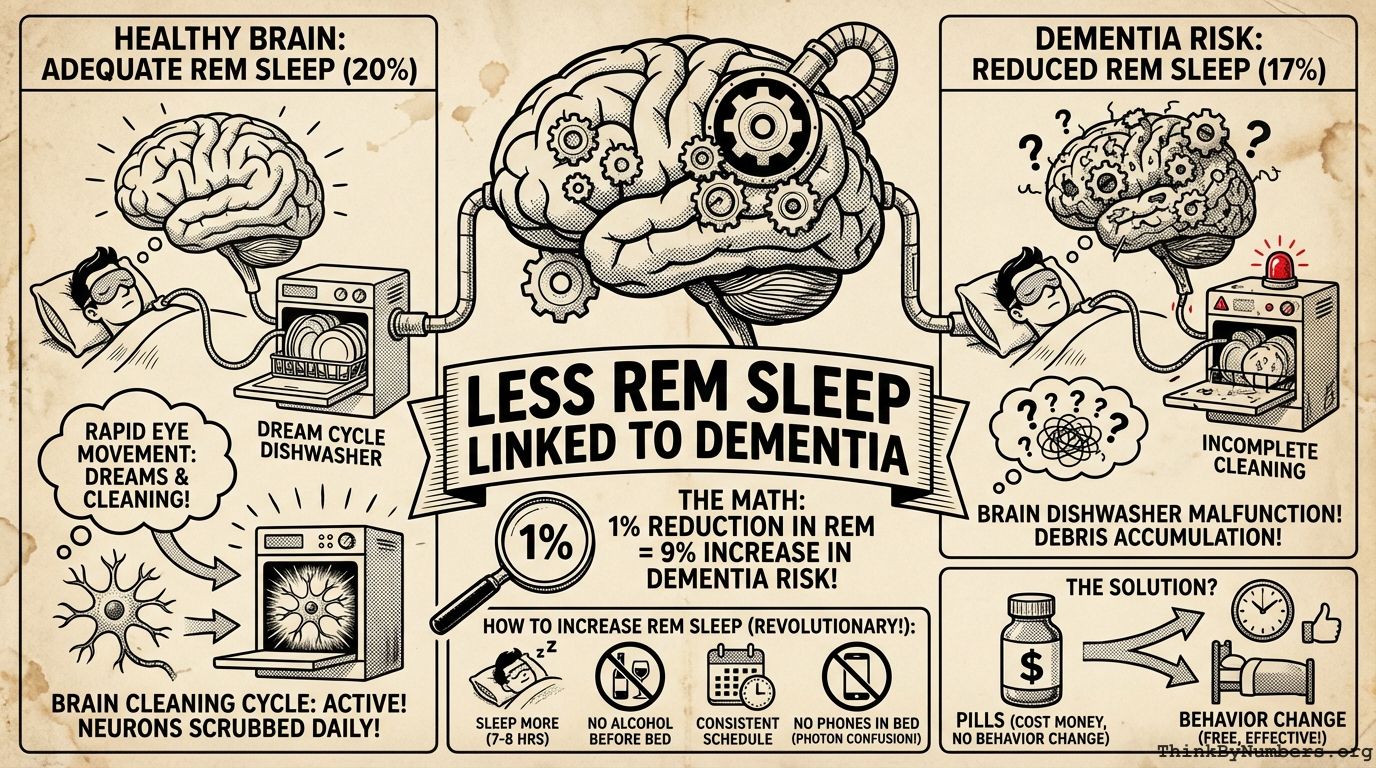FDA banned monoclonal antibodies despite 30% efficacy. They ignored $3.7T Long COVID cost, risked $600M in preventable hospitalizations.
Health
9 posts in this category
1 in 20 million terrorism death chance. 1 in 10 Alzheimer's chance. We spend 162x more on military than brain research. Math is wrong.
FDA regulations killed medical progress by 70% in 1962. Lifespan growth immediately cut in half. Drug development now costs 13 times more.
Only 21,000 of 1.162 quadrillion possible drug combinations tested. Would take 3.2 billion years at current pace. Earth is 4.5 billion years old.
44 million people worldwide have Alzheimer's. NIH spends $327 per victim while Americans spend $1,200 per person on alcohol to forget things temporarily.
Poop transplants reduced autism symptoms 45% by fixing gut bacteria. Turns out moving microbes between intestines works better than most treatments.
Americans spend $60 billion on weight loss while ending world hunger costs $30 billion. One group pays to subtract calories, the other needs calories.
Cancer kills 14 times more people than opioids (1 in 7 vs 1 in 96). Media covers opioids wall-to-wall. Cancer gets a 5K run with matching shirts.
Every 1% reduction in REM sleep increases dementia risk 9%. Brain has self-cleaning mode that requires sleep. You ignore it and drink coffee instead.

